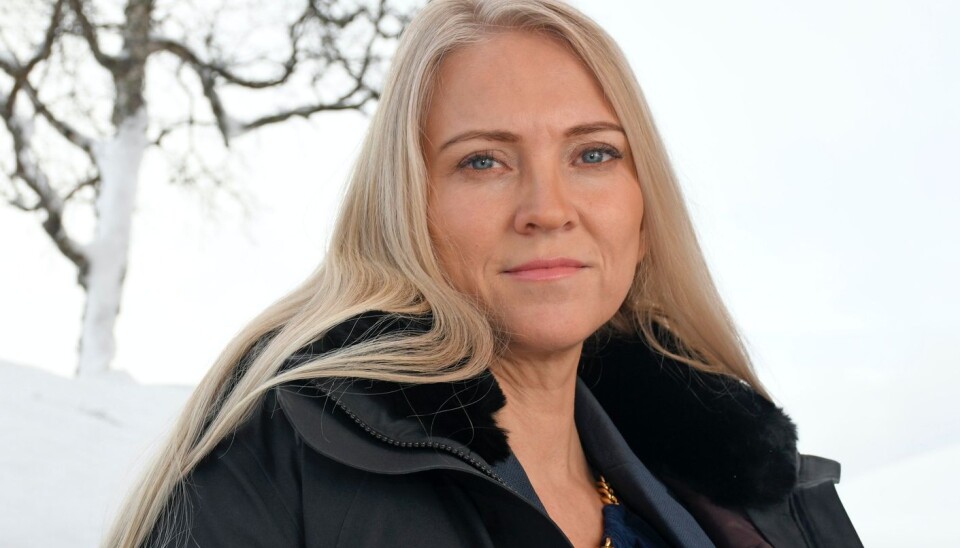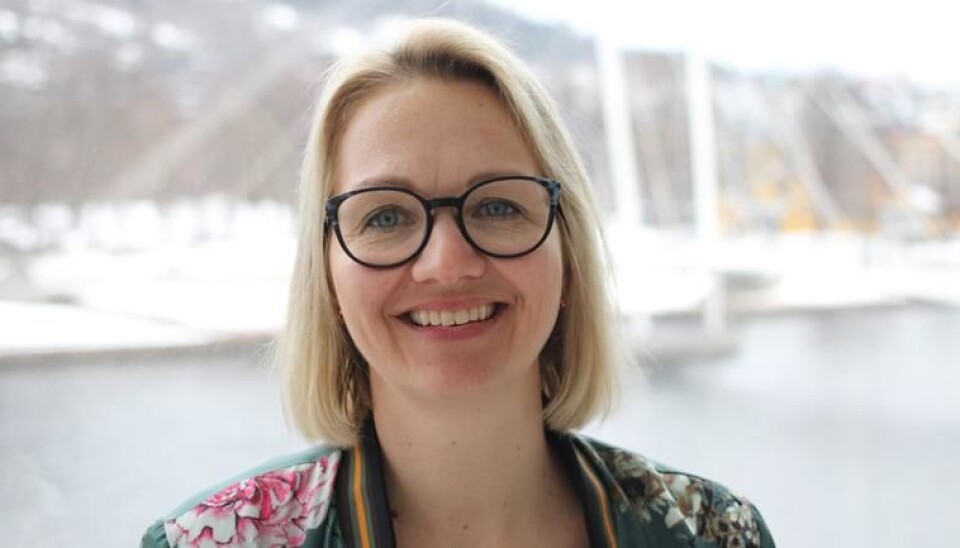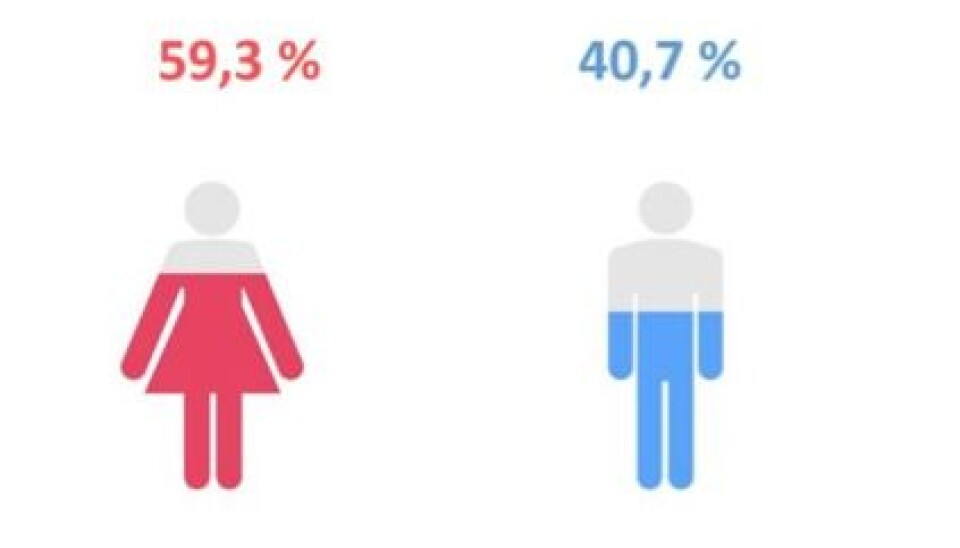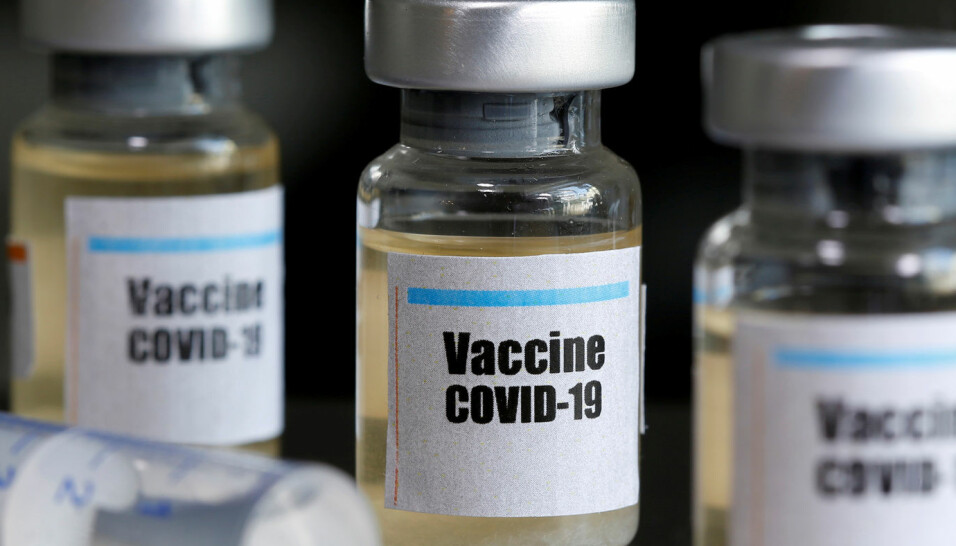
Record numbers apply to nursing and medical studies during the coronavirus pandemic
Never before have so many people applied to universities and university colleges in Norway. Almost every tenth applicant wants to become a nurse. Many also want to become doctors.
“This makes me happy,” says the head of the Norwegian Nurses Organisation, Lill Sverresdatter Larsen.
“We need nurses now more than ever, and there is a national and international shortage of nurses. Nurses have shown that they are extremely resilient now that the profession has become even tougher in recent weeks,” she says.
More than 150,000 have applied for higher education
The pool of applicants to Norway’s universities and university colleges has jumped by 8.7 per cent this year.
More than 150,000 people have applied to study via the country’s unified application portal, called the Norwegian Universities and Colleges Admission Service (NUCAS). This is an increase of roughly 12,000 compared to 2019.
“Experience from previous crises shows that more people want to get an education when times are bad,” says Research and Higher Education Minister Henrik Asheim (H).
He adds that this is good news, because Norway will need well-educated people in all sectors in the years to come.
Coronavirus crisis shines the spotlight on health professions
Pia Cecilie Bing-Jonsson is Vice-Dean at the Faculty of Health and Social Sciences at the University of South-Eastern Norway.
“It is very gratifying that so many people want to study nursing and other health care professions,” she said.
“We are very pleased that so many people have applied to our study programmes. The coronavirus crisis has given us all kinds of evidence about the important role that health professionals play in our society.”
Bing-Jonsson, like Larsen and Asheim, believes that the high application numbers for health professions may be a result of the coronavirus pandemic.
“Nurses and other health workers have been in focus during the crisis, which we think may be one reason why more people want to study these professions. At the same time, many people are now unemployed and see that nursing and other health professions offer fairly secure jobs in the future,” she said.

Increase in nursing school applications of 34 per cent in Sweden
In Sweden, where coronavirus deaths are more than 10 times that of Norway, applications to higher education programmes show the same, but stronger, trend.
Application numbers to nursing programmes in Sweden have jumped 34 per cent compared to last year. Applications to medical schools have increased by 26 per cent.
The Swedish Council for Higher Education (UHR) firmly believes that the coronavirus situation has led to the increase in the number of applicants to health-care related professions.
“It is gratifying that more people are choosing these essential programmes and professions, where there is a high demand for qualified personnel. The person who selects a health education programme has good prospects on the labour market,” says Karin Röding, UHR Director General, in a press release.
16.7 per cent more medical school applicants
Applications to Norwegian medical schools have increased 16.7 per cent this year.
A total of 4,107 applicants listed medical studies as their first choice. They will compete for just 636 study places, or an average of 6.5 medical school applicants per study slot.
Under the NUCAS application process, potential students choose their first-choice study programme, but can also list additional choices if they are not admitted to their first choice. Application numbers are consequently reported as those who have listed the various study programmes as their first choice.
More stringent requirements for nurses
The increase in the number of applicants for nursing studies in Norway comes after the introduction of stricter qualification requirements in 2019. A minimum grade of 3 out of a possible 6 in Norwegian and mathematics was required at that time.
These stricter requirements led to a fall of almost 19 per cent in applications from 2018 to 2019.
Asheim, Norway’s Minister of Education, believes that the increase this year following last year’s sharp decline also shows that applicants have adapted to the new, higher grade requirements.
“Academically strong candidates for nursing education will help to strengthen the quality of both the education and the services,” he said.

Social science is up, police officers down
Norway’s educational institutions have also seen a strong increase in the number of applicants this year to history, economics and administrative studies and media studies. All subjects have seen an increase of more than 20 per cent compared to 2019.
Applications to programmes in the social sciences, such as psychology, criminology, sociology, political science, crisis management or international studies, are also up.
These studies have seen a 21.5 per cent increase this year among first-choice applicants compared to last year.
A total of 19,434 first-choice applicants are competing for 6,229 study places in the social sciences.
The University of Oslo’s (UiO) one-year programme in criminology is the most competitive programme in all of Norway. A total of 1120 first-choice applicants are competing for just 24 study slots.
The Norwegian Police University College however, has seen a decline in the number of first-choice applicants by as much as 18.3 per cent this year. Applications also dropped 18.4 per cent last year.
Almost 60 per cent of applicants are women
Almost 60 per cent of higher education applicants in Norway were women. Just over 40 per cent were men, which is the same as in 2019.
The proportion of women who listed nursing programmes as their first choice was 84 per cent.
Veterinary studies, nutrition and social work were the other educational choices with the highest proportion of women.
The only areas where there were more male than female applicants were technology studies.
Educational choices in Norway clearly continue to follow traditional gender roles.

Many apply straight from high school
This year saw an increase of more than 10 per cent in applicants who applied straight from high school.
More than half of all applicants to Norway’s universities and university colleges are 22 years or younger.
This may also be related to the coronavirus crisis, which has made it more difficult for young people to find work.
Many applied at the last minute
As many as 24,702 applicants submitted their application at the last minute, meaning at the very last deadline. This was an increase of 10,000 compared to last year.
NUCAS interprets the increase as evidence that more people want to have a plan B by applying for higher education in Norway.
This year, applicants could choose from a total of 1303 different study programmes at 27 universities and university colleges.
Translated by: Nancy Bazilchuk
Source:
Norwegian Universities and Colleges Admission Service summary fact sheet (in Norwegian), April 2020.
———


































